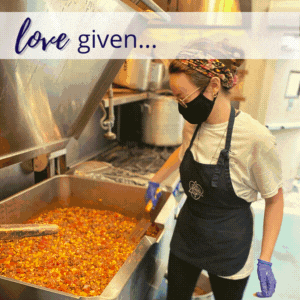By Katie and Luke Johnstone, Fidesco USA
In August 2015, an organization called Fidesco USA sent us, a newly married couple, to serve a two-year volunteer mission in Manila, Philippines. There, we partnered with another organization, the ANAK-TNK Foundation, which provides homes for about 300 former street children as well as preschool/feeding centers for over 700 children living in the slums. Luke served as the materials coordinator for ANAK-TNK, which entailed purchasing and bargaining for everything the homes and centers needed. As a nurse, Katie worked in the slums as the health and nutrition coordinator for children, pregnant women, and elderly.
When you think of life in a foreign mission, images of a beautiful rural country usually come to mind – fresh crisp air, peaceful silence, and an evening sky full of beautiful stars. In reality, our mission in an urban city was very different from these romantic images we often attach to missionary life, but we found deep peace and joy in Manila. Manila is a crowded, hot, and polluted city. When you walk outside the door, you don’t know who you are going to meet, what kind of sights you will see or things you will smell. On our commute to work, we would pass numbers of homeless families waking up in the morning on the sidewalks, street children wandering the city barefoot, and elderly or disabled on the street begging for their families. Amidst this pain, we were so often inspired by the joy of the Filipino people and their ability to always smile with a warm and welcome heart.
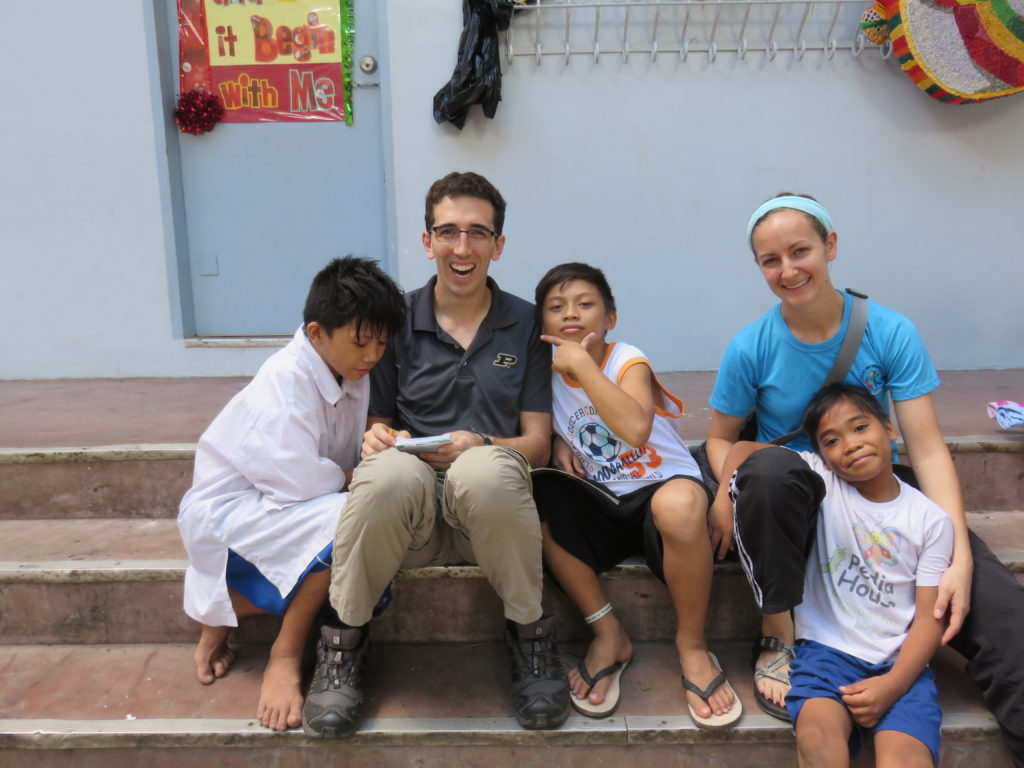
In the slums, Katie walked alongside countless mothers who were struggling to care for their families. Families were often broken, suffering from addiction, or living with abuse. One of Katie’s responsibilities was to guide families and help educate them on how to care for their children. Some of the most difficult moments were when parents with sick or malnourished children refused to change their habits; children would continue to suffer or even die. In addition to Luke’s daily responsibilities, one night a week he would join a team of ANAK-TNK to venture out into the city searching for children living on the streets. Each week his team would encounter children surviving in harsh conditions, yet they didn’t always return to ANAK-TNK. The grip of gangs, drugs, prostitution, or fear of the unknown would often hold the children back.
Encountering such suffering on a daily basis was overwhelming. We had the desire to make a concrete difference but admittedly, a naive belief that we could do this ourselves. This brought about a sense of helplessness as time went on and nothing changed. We began to spend more time in prayer and adoration, attending mass throughout the week. Through our spiritual journey, we realized that only God could heal the root of the suffering we encountered. But what then was our mission if not to alleviate suffering?
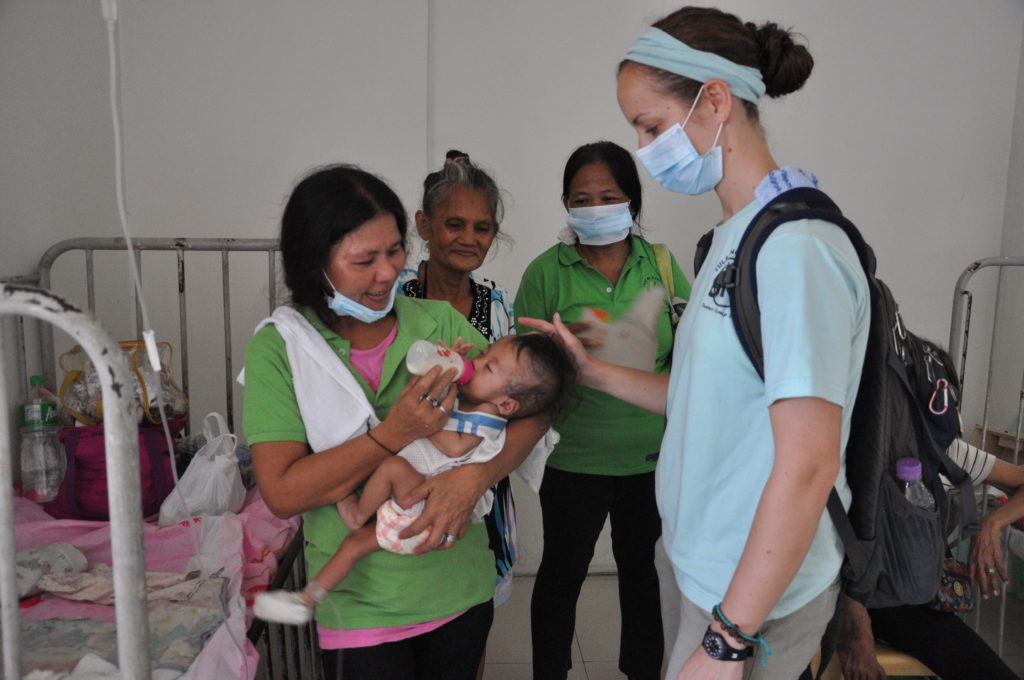
God answered by reminding us of the words of the Gospel. Particularly, our constant interactions with the poor reminded us of the parable of the Good Samaritan. We realized that at the heart of this parable was the effort to show dignity to the suffering man. He may have been cast aside, left for dead by others, but the Good Samaritan extended God’s loving hand to show the man that he too was worth everything in the eyes of God.
Early one Sunday morning while leaving for mass, we noticed a young woman on our neighbor’s doorstep who had removed her clothes to dry on our neighbor’s clothesline. It was evident that she had some mental illness and was searching for relief from a rainy night on the streets. While we wanted to help, we were also late for the last mass we could attend. It only took a couple moments to realize that we couldn’t leave this frightened, naked woman alone. We quickly gathered some clothes, water, and food for her. With our neighbors’ help, we contacted the neighborhood officials to ask for assistance. While it was obvious that the young woman had many physical needs, we felt it was most important to treat her with the love and dignity she may have lost throughout her lonely years on the streets. As we were waiting with this woman who had been cast aside, we recognized there were countless opportunities we failed to acknowledge the destitute in our own lives back home.
We realized that our real mission was to infuse God’s love into our daily actions for those we served. Moreover, our most important mission was prayer for those with wounds that would not be healed in this life. These realizations lifted a weight from our shoulders as we understood we were not responsible for fixing every desperate situation we encountered. Of course, there were concrete things we could do in our mission that satisfied in part, human suffering. In fact, it was tempting to want to measure the success of our efforts in these tangible acts – giving food to a hungry person, bandaging a wound, or rescuing a child from the streets. While these are all remarkable victories, the fruits of our labor – peace, hope, joy – were more important than any tangible act we performed. So long as we did our work with love, we trusted that God would make our work fruitful. In the end, this fruit and this love, which comes from God, can heal hearts and bring about new life.

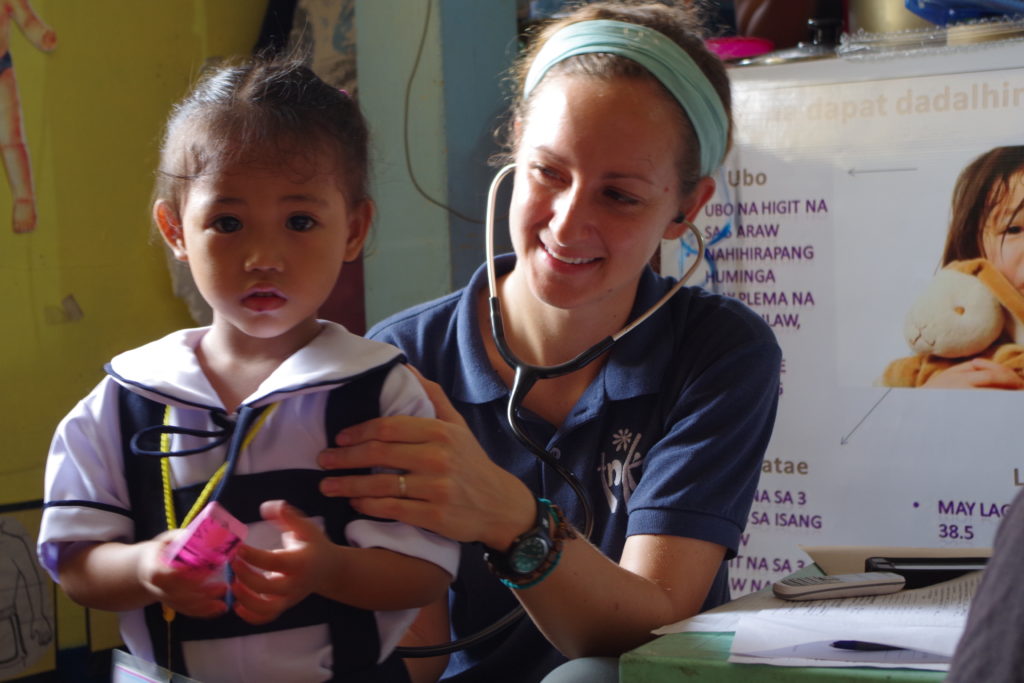
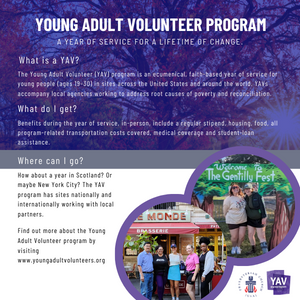
 Thousands of faith-based service opportunities can be at your fingertips with the RESPONSE. Download the latest edition today!
Thousands of faith-based service opportunities can be at your fingertips with the RESPONSE. Download the latest edition today!
